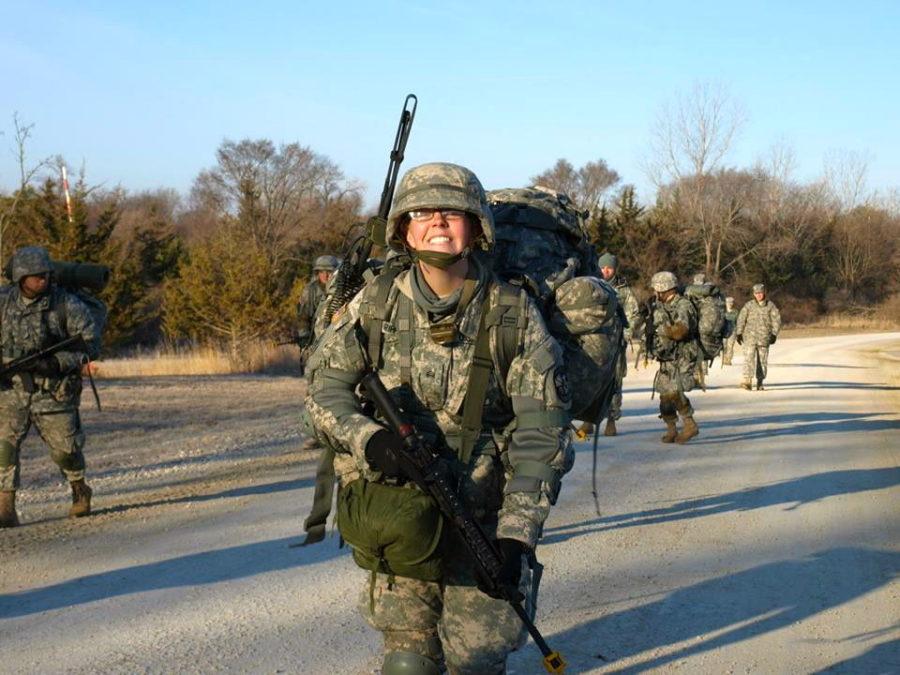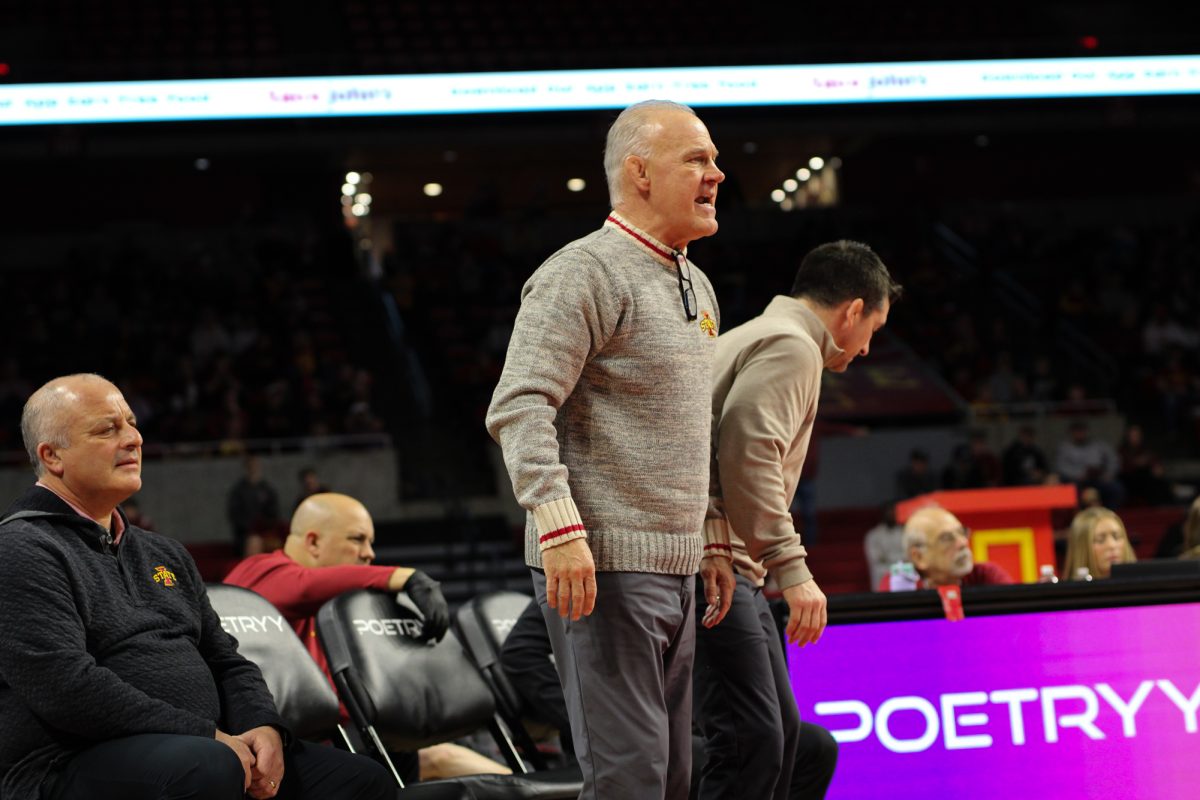Leading Women: Female cadets stand out in Army ROTC’s leadership course
Megan Kipperger was was one of the 19 ISU Army ROTC cadets to earn an excellence rating at the Leader Development and Assessment Course during the summer. She and Nicole Donato were stand-outs for the Army ROTC.
September 9, 2014
Megan Ripperger may have spent 29 days at Fort Knox, Ky., but she wasn’t protecting any gold.
Instead, the senior in dietetics was one of the 19 ISU Army ROTC cadets to earn an excellence rating at the Leader Development and Assessment Course. The 61 percent excellence rating earned Iowa State the top marks in the brigade of 42 schools from the Midwest.
Ripperger is just one of many women to shine for Army ROTC at 88 separate events all around the world this summer, according to Lt. Col. Richard Smith, chairman of military science and tactics.
“This year was phenomenal,” Smith said. “It was the best performance we’ve ever had and these ladies were a huge part of that. We couldn’t have done it without them.”
Nicole Donato, senior in kinesiology and health, said the highlight of her summer was a trip to the Republic of Kosovo on an English teaching mission. The mission was sponsored by the Cultural Understanding and Language Proficiency Program through the ISU Army ROTC.
“We taught English to their enlisted security force,” Donato said. “They’re not allowed to be an armed force yet, but that’s what they’re trying to work toward.”
Donato said she worked with 70 to 80 Kosovar students who were chosen because their English proficiency was developed enough that the Army could foresee them in American military schools in the near future.
The Republic of Kosovo declared its independence in 2008 and was recognized by the United States shortly afterward. The U.S. Army has worked with Kosovar security forces in the hopes of eventually bringing them into NATO since 2012.
Donato spent the rest of her summer leadership course where, according to Smith, she finished No. 5 out of 48 in her platoon.
She said the four-week course was a challenge because of the heat but was worth it because of the bond formed with the other cadets.
Students from ROTC programs at 273 colleges and universities attend the event each year. In order to avoid confusion, Smith said the ISU Navy ROTC and ISU Air Force ROTC are separate entities from the ISU Army ROTC.
“Nicole earned two excellence ratings as well,” Smith said. “She gave an exceptional performance in Kentucky.”
Donato said she is looking forward to her four-year enlistment after graduation. She hopes to use her education to help her fellow soldiers in the field.
“I want to go into the medical field — Medical Services Corps — and hopefully I can be a platoon leader for combat medics,” Donato said.
Ripperger finishes first
Ripperger, or Rip as her fellow cadets and officers call her, has been an ROTC scholarship recipient since her freshman year. She says she knew what she wanted to do with her future back in high school.
“I started off just wanting to join the military,” Ripperger said. “[I] just wanted to serve my country, but when I told my parents about it, they said ‘you have to go to college first.'”
Each cadet who completes the ROTC program and earns a degree from Iowa State is commissioned as a lieutenant. The graduates have a choice of four years of active duty or eight years in the National Guard or Army Reserve.
Smith said he was glad Ripperger decided to attend Iowa State before enlisting, adding that her performance at the leadership course was phenomenal.
“Rip ended up No. 1 in her platoon,” Smith said. “She’s a superstar. She is now the captain of the women’s Ranger Challenge Team.”
Ripperger hopes to join the more than 5,000 officers previously commissioned through the ISU Army ROTC. She said she plans to go on active duty after graduation.
“I did an internship at Joint Base Lewis-McChord [in Tacoma, Wash.], shadowing the dietitians at the Madigan Hospital,” she said. “That’s something I’d like to do.”
Leadership
Donato and Ripperger both said that sometimes ISU Army ROTC students are misunderstood by the general student population.
“There’s a lot of work behind the scenes that students don’t see,” Ripperger said. “Students only see us in uniform and when we’re training.”
According to Smith, both women have succeeded because they have a desire to lead and be in charge.
“They want to win,” Smith said. “They want to be the best they can be. They’ve put the extra effort in.”
Donato said other students don’t always understand what the ROTC is all about.
“We’re learning to be leaders in the United States Army,” Donato said. “[Students] don’t see us as planners preparing to be leaders.”







